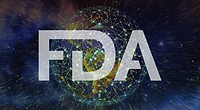Benefits of Food Traceability

Traceability is becoming even more important in developing and under developed countries. From the work of the Institute of Food Technologists and the Global Food Traceability Center in South America, Asia and the Middle East, we have identified some of the reasons why traceability is important in these regions that build on top of food safety.
First and foremost, these regions are most concerned with protecting their cottage industries. Whether we are talking about mangoes from India or seafood from Indonesia, every country wants to protect products considered uniquely theirs. As we know from several food safety outbreaks over the last decade, a food safety incident in one product affects the entire sector. Traceability allows these countries and supply chains to confidently prove that their foods are safe and unrelated from any ongoing food safety incident.
Traceability also helps eliminate illegal activities within the supply chain. Whether that’s corruption where a farmer doesn’t get paid what he is due or overfishing without a license, traceability gives suppliers and customers the confidence that what they are buying is legal, safe and fairly traded.
Additionally, traceability also helps mitigate fraud and counterfeiting of food. Whether it’s a high-value commodity like olive oil from Italy or a low value commodity product like fruit from Brazil, counterfeit products not only threaten to cause a financial loss to legitimate businesses, but also have a high risk of causing food safety incidents that affect an entire sector. By having the visibility of the supply chain through traceability, supply chains can be more confident of legitimate products entering the marketplace.
In some cases, such as illegal, unreported and undocumented fishing of wild-caught fish, improving traceability has had a positive secondary effect. It also helped improve the human rights of fisherman and their crew, as well as prevented the trade of illicit drugs and money laundering that was done via fishing vessels. Treating farmers and laborers fairly and humanely is also a prerequisite when supplying food to large multinational corporations like Starbucks or McDonalds. Traceability is a tool to help prove that.
On a positive aspect, having improved traceability encourages and promotes the consumption of domestically produced products thereby helping the national economy of a developing or underdeveloped country. It helps induce a sense of national pride in a domestically grown or produced food.
At the same time, better traceability also helps facilitate international trade by taking the domestically produced food to markets outside the region and creating a demand for it.
Finally, there is a growing movement around the world on sourcing locally and buying locally. As more consumers demand local, sustainable, organic, non-genetically modified foods, traceability is the only tool that can prove to the consumers they are in fact purchasing and consuming a product that makes these claims.
Thus, there are numerous reasons why every stakeholder in the global food supply needs to be thinking about traceability and why it’s important to them. It does not matter if you are a fisherman off the Ivory Coast or a large multinational company sourcing ingredients from Africa, traceability helps achieve the goals of food safety while preventing bad things from happening and promoting good things from happening in your supply chain.
When most people think of traceability they think about regulatory compliance. However there are significant benefits to traceability. Business benefits typically fall into one of three primary categories: operational efficiencies, market access and risk mitigation. Depending on your business, you may be looking for benefits in one or more of these categories, which generally overlap each other.
Operational Efficiency Benefits
Improved Supply Chain Management: Increased inventory accuracy that allow firms to meet customer demand more efficiently.
Increased Supply Chain Confidence: More efficient recalls that result in supply chain participants increasingly demanding improved product tracing performance from trading partners.
Process Improvements: Improvements in product tracing often results in decreased error rates, increased product selection accuracy, and streamlined document management to more effectively manage and maximize work flow.
Decreased Spoilage/Waste and Shrinkage: Improved product tracing often results in more accurate inventory management, reducing ‘shrinkage’ costs and food waste.
Market Access Benefits
Improved Brand Reputation: Product tracing systems support decisions that impact brand reputation. Improving product tracing improves decision-making ability.
Increased Consumer Confidence: Traceability provides the proof that the product has specific attributes as claimed. While product tracing may be considered a normal cost of doing business, not having traceability negatively impacts consumer confidence and customer loyalty for many firms.
Expanded Markets/New Customers: Since market entry requirements differ, recall and traceback risk mitigation requires trading partners to meet minimum tracing standards.
Risk Mitigation Benefits
Insurance/Liability Cost Reduction: Some insurance providers require product tracing capability before they underwrite certain insurance policies for firms within the food industry.
Reduced Recall Costs: Reduces time to access critical data in the event of a recall/withdrawal and reduces the scope of a recall/withdrawal.
Return to Business as Usual: Faster recovery of normal business activities after a significant recall; faster verification that the business is not implicated in a recall
Traceability is often an essential corporate tool in other industries to reduce the business risk to manufacturers and retailers. Insurance liability costs continue to rise and traceability can significantly reduce both the cost of insurance and the impact of litigation if it occurs.
Reasons to Invest in Traceability
Ease of compliance with global regulations. There are many ways a traceability solution can help simplify the complex process of achieving regulatory compliance on a global scale. Enhancing traceability globally through standardized processes and data will lead to a lower cost of compliance, reduced risk and stronger customer relationships.
Improved recall process. When a quality or compliance failure leads to a product recall, companies face not only tens of millions of dollars in direct costs, but much more. In addition to direct costs, there are hits to the stock price, loss of customer loyalty and damage to the brand. It typically takes months or longer for stock prices to recover. If a company can leverage its global traceability capabilities to quickly contain problems before they enter the distribution channel, they might obviate the recall in the first place.
Greater inventory visibility. Inventory is one of the most expensive assets, typically representing up to one-half of total invested capital. The first step in controlling that cost is enterprise-wide visibility to inventory levels, location and status. To seriously reduce inventory waste, timely and granular visibility to inventory at a global level is needed.
More timely and accurate upstream and downstream data. Most regulatory initiatives require that each party in the supply chain can provide “one step up and one step down” traceability. That means every party tracks back to their direct supplier and forward to the direct recipient of their goods. This issue presents an opportunity for manufactures. Maintaining visibility to a product after it enters distribution has significant economic benefits. It lays the foundation for better synchronization of the supply chain, improved and more far-reaching containment capability and greater understanding of demand.
Improved returns process. Traceability also helps identify and minimize certain hidden costs. For instance, a manufacturer might make incur costs unnecessarily, such as shutting down plants or the wrong lines, or attributing the problem to the wrong supplier. A comprehensive global traceability system can dramatically improve returns reconciliation.
Should developing countries invest in traceability? Absolutely because there are numerous reasons why traceability systems are not just something for developed countries, such as:
• Product traceability can affect virtually all sectors—agriculture, processed foods, health and nutrition, the environment and sustainability (including carbon footprint), governance and the use of technology to move a country forward.
• Traceability will impact foods entering a country’s markets, as well as improve the ability of a country to enter export markets legally. Governments and nongovernmental organizations are implementing programs to expand the opportunities for developing-country producers and processors to export to new markets based on traceability capacity.
• It can help people in developing countries to adapt their buying preferences to more domestic purchasing and thus support domestic production with attendant economic benefits.
• Having a traceability system can enhance access to capital and overall operational efficiencies
• Increased opportunities to piggy back off existing programs and initiatives in developed countries and thus no need to reinvent the wheel
Traceability is about much more than recalls and animal health: It lowers costs, improves value chain efficiencies and strengthens brand equity. It has more to do with business processes than gathering data and storing it. Quality and food safety principles can be used to plan and implement traceability.
William Fisher is vice president of the Institute of Food Technologists and the executive director of the Global Food Traceability Center.
Looking for a reprint of this article?
From high-res PDFs to custom plaques, order your copy today!






